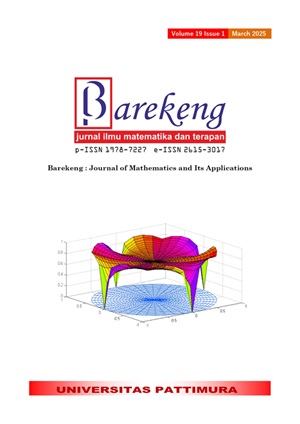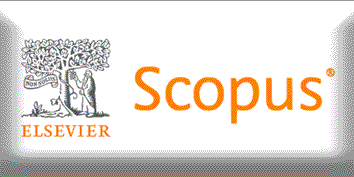FORECASTING EGG PRICES WITH CONVOLUTIONAL LONG SHORT-TERM MEMORY IN INDONESIA’S HIGH STUNTING PREVALENCE PROVINCE
Abstract
The Sustainable Development Goals (SDGs) are a series of 17 goals fixed by the United Nations and adopted by 193 countries in 2015, including Indonesia. By 2030, to end all forms of malnutrition, targeting on stunting and wasting in children under 5 years of age is one of the targets from Goals Number 2. One affordable source of protein and nutrition used as a solution to overcome malnutrition problems such as stunting is eggs. Egg price modeling was carried out to see the affordability of prices for the community. Weekly dataset of egg price in NTT Province from 2018 to 2023 used to modeling with Convolutional LSTM. The Convolutional LSTM components are Adam optimizer, ReLU activation function, Huber loss function, with batch size and neurons of 32. The MAPE value obtained from the model is relatively small, with MAPE for training, validation, and testing of 1.97%, 1%, and 1.19% respectively. The results of egg price forecasting for December 11, 2023, to January 8, 2024, show that egg prices tend to continue to decline per week. Thus, a decrease in egg prices can be a good thing in providing more affordable nutrition for the community.
Downloads
Copyright (c) 2025 Sinta Septi Pangastuti, Muhammad Restu Agam, Ananda Hilmi Santika, Juzma Fawwaza Rosadi

This work is licensed under a Creative Commons Attribution-ShareAlike 4.0 International License.
Authors who publish with this Journal agree to the following terms:
- Author retain copyright and grant the journal right of first publication with the work simultaneously licensed under a creative commons attribution license that allow others to share the work within an acknowledgement of the work’s authorship and initial publication of this journal.
- Authors are able to enter into separate, additional contractual arrangement for the non-exclusive distribution of the journal’s published version of the work (e.g. acknowledgement of its initial publication in this journal).
- Authors are permitted and encouraged to post their work online (e.g. in institutional repositories or on their websites) prior to and during the submission process, as it can lead to productive exchanges, as well as earlier and greater citation of published works.






1.gif)



